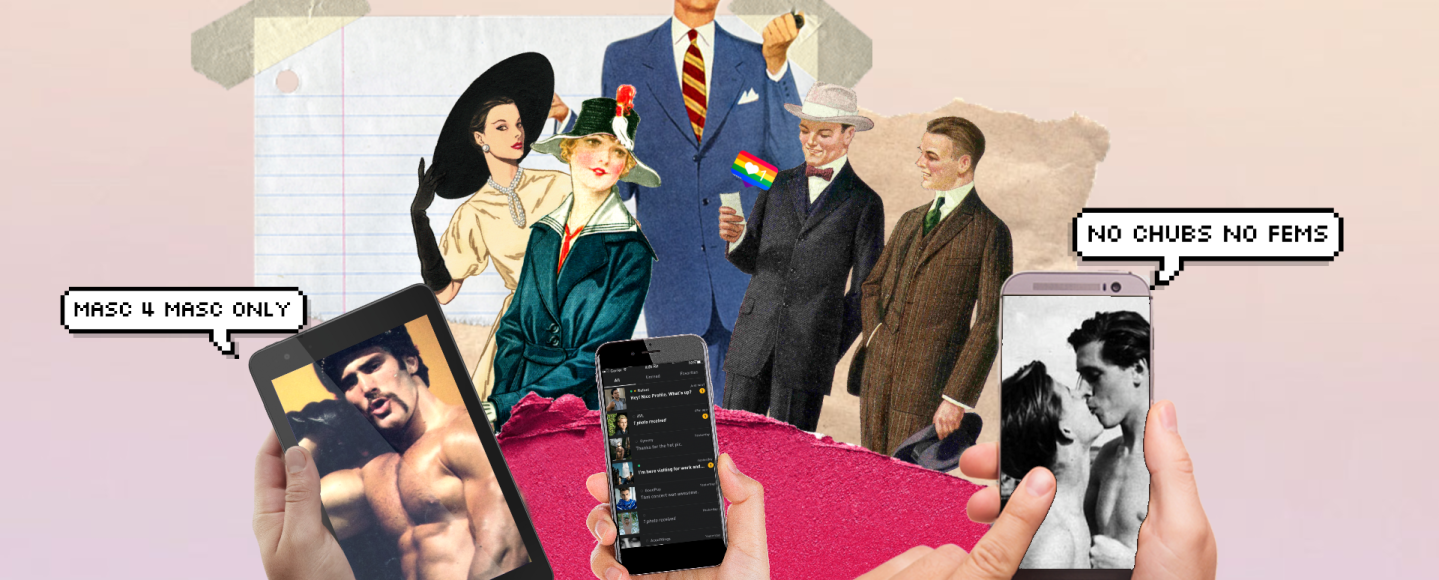Quick, ask the closest queer guy about his experiences regarding dating and hook-up apps and chances are, you’ll be regaled with horror stories faster than you can recall the iconic intro to Carly Rae Jepsen’s Run Away With Me.
It’s not that queer hookup apps and websites are inherently bad — it’s just that they allow many of our more problematic traits to readily surface.
Take Grindr, for example.
The app, which boasts an estimated 3.8 million daily active users spread out across 234 countries as of 2019, has consistently found itself under fire for the display of offensive, racist, mysogynistic, transphobic, and homophobic language and behavior by some of its users.
It becomes even more frustrating when one takes into account that its higher-ups have been largely apathetic on the matter, with app creator Joel Simkhai even noting in a 2014 interview with Haaretz that while he “didn’t like” the reported incidents, he “[isn’t] a sixth grade teacher” and it “[isn’t his] job” to police such matters.
Locally, the trend has been largely the same, with many users reporting instances not just of brutal rejections and catfishing, but of outright discrimination — “bawal chubs” “strictly no to effems” “bawal halata” “masc only” “discreet for discreet lang” — from fellow uh, Grindr-ellas.

But for all their flaws however, there are good things that come from gay dating and hookup apps, one of which is the establishment of communities.
This is according to researchers Chris Berry, Fran Martin, and Audrey Yue, who, in a study, stated that the relatively recent emergence of gay and lesbian communities in Asia and its diaspora can be linked to the development of information technology in the region.
University of the Philippines researcher Cheryll Soriano also touched upon this idea, noting in a study that one’s online presence can also help “establish connections to advance particular social and political causes” in communities such as that of the LGBTQIA+.
Gary Harper from the University of Michigan, on the other hand, says the virtual interactions offered by the Internet provide LGBTQIA+ youth with a safe and confidential place to connect with others as they develop their sexual orientations and identities, and thus serve as a form of connection to the larger gay community during a time when they desire connection and social support.
Writer Alexander Chevez agrees, putting emphasis on its importance to HIV+ youth.
In a column published in Queer publication .Them, Chevez writes: “Grindr is a great option for newly poz youth to find support when they have nobody to tell, no parent they can trust. By giving users the option to seek guys who identify as poz or are interested in those who do, Grindr lets you speak with strangers before you can tell your friends.”
It’s this need for an actual LGBTQIA+ community that upcoming social and dating app CURV hopes to capitalize on.
Billing itself as the first inclusive app that offers a platform for LGBTQIA+ Filipinos, CURV sets itself apart from its contemporaries by strongly urging its users to build a culture of respect, as well as strictly focus on the importance of connection, community, and equality.
“Users are urged to build a culture of respect, to meet people beyond their part of the rainbow, and maybe even welcome more diversity in the people they date” CURV said in a press statement, emphasizing that “there’s nothing to lose when we swerve from stereotypes and kick discrimination to the curb.”
But I digress: hook-up and dating apps are the farthest things from being cure-alls for society’s many ills but that doesn’t mean one has to discount their profundity and importance to others.
Just like most of the guys my age, I have had my brushes with hook-up and dating apps. And why not? They’re free for the most part — some apps ask you to drop digital coin for upgrades— convenient, and they come in handy for those nights when you just want human company of the non-platonic kind.
Taking everything at face value, it’s easy to dismiss dating and hookup apps and their far-reaching influence on society as just another manifestation of our obsession with sex and validation, with some even condemning them as being insulting to the concept of human interaction and connection. But the truth is, they aren’t. They’re just apps — creations formed from jumbled strings of code and data — and if they help people get connected with each other, then who are we to judge? And considering all the good things hook-up and dating apps bring to those who choose to use them, I guess the most important question to ask now is this: why are we letting digital a*holes ruin the experience for us?
There’s a lot to unpack regarding toxic and problematic behavior on dating and hook-up apps, and while some of its more serious aspects — casual racism, internalised homophobia, and misogyny — may take longer than a few weeks to unlearn and get rid of, the others can be easily solved just by simply choosing to not be a digital a*hole. To paraphrase the words of the iconic Miranda Priestly: “Are we reaching for the stars here?” No, we’re not, Brenda.
Right now, if you ask the closest queer guy about his experiences regarding dating and hook-up apps, chances are, you’ll be told countless horror stories of online dalliances gone awry faster than you can recall the iconic saxophone intro to Carly Rae Jepsen’s Run Away With Me.
It’s not too late to change that.

0 comments on “Gay dating apps: Don’t let digital a*holes ruin the experience”